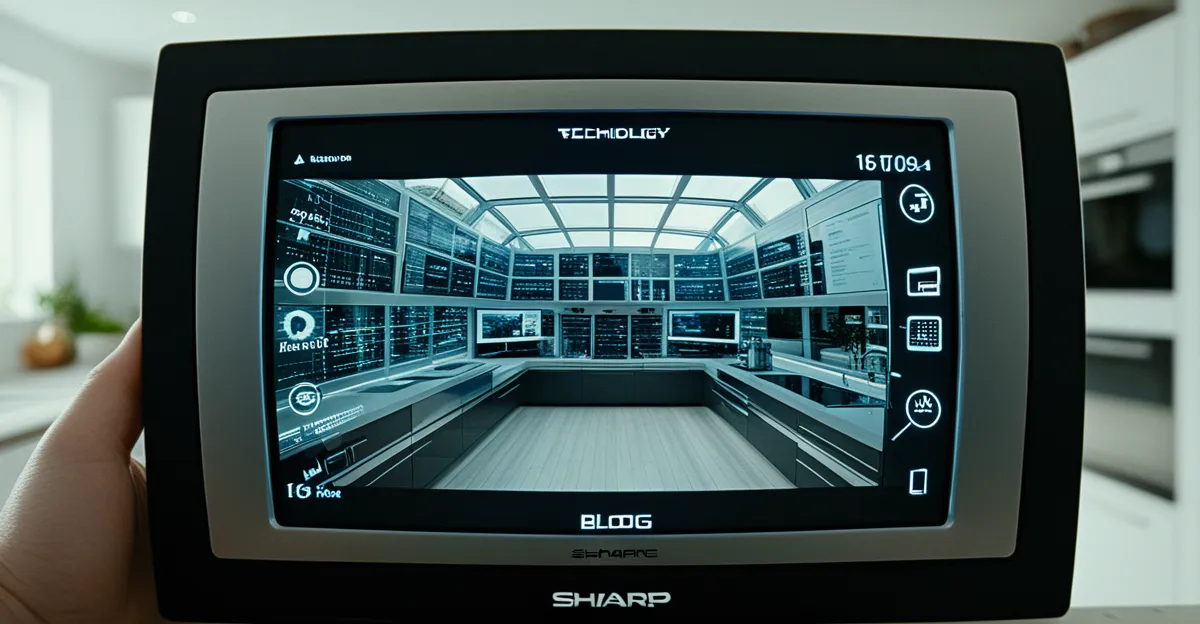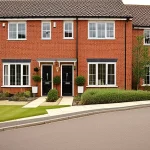Technological Advancements Shaping UK Home Living
The evolution of home technology UK has been remarkable, driven by innovations in UK home automation. Smart home trends in the UK now feature a diverse range of devices, from intelligent lighting systems and thermostats to interconnected entertainment and security solutions. These systems communicate seamlessly, offering homeowners enhanced control and convenience.
Market data reveals a steady growth in smart home adoption across the UK, with more than half of households integrating some form of automation. This uptake is fueled by affordability improvements and expanding product ecosystems. UK tech startups play a pivotal role, developing cutting-edge solutions that tailor home environments to user preferences while boosting energy efficiency.
Also to see : What are essential tips for maintaining UK period homes?
Notably, voice-controlled assistants and app-based interfaces have become central to these trends, allowing users to manage home devices effortlessly. The synergy between various smart components supports more intuitive and responsive home environments. This momentum highlights the UK’s position at the forefront of adopting smart home trends that combine practical benefits with technological sophistication.
Impact of Technology on Lifestyle and Convenience
Smart devices UK have transformed daily life by creating connected ecosystems that simplify routines and enhance accessibility. Through seamless integration with mobile control and voice assistants, users can easily manage lighting, heating, and entertainment from anywhere. This level of connectivity fosters a more responsive and personalised experience catering to individual preferences and needs.
Also to see : How do you create a welcoming entrance for a UK home?
Automation benefits also extend to time-saving and energy management, reducing manual tasks while improving the overall home environment. For example, scheduling systems adjust device settings automatically, adapting to occupants’ habits. This boosts comfort and efficiency simultaneously.
Moreover, advancements in smart devices UK promote inclusiveness by offering intuitive interfaces accessible to people with diverse abilities. Adaptive controls and voice recognition enable effortless interaction without physical barriers. The growing array of compatible devices supports expanding functionality within the UK home lifestyle, encouraging broader adoption.
Together, these innovations demonstrate how smart home trends drive lifestyle improvements by prioritising convenience, customisation, and control. The continuous development of automation benefits positions UK home technology as a vital tool in enhancing everyday living experiences.
Energy Efficiency and Sustainable Living
Smart solutions are central to energy efficiency UK homes, enabling tangible reductions in consumption. Smart thermostats and energy meters tailor heating and power use to occupant behaviour, cutting waste without sacrificing comfort. These devices learn routines, adjusting temperatures automatically and notifying users of unusual spikes, contributing to sustained energy savings.
Sustainable smart homes increasingly incorporate eco-tech UK developments such as solar panels and domestic battery storage. Solar installations convert daylight into electric power, while home batteries store excess energy for later use, reducing dependence on the grid. This integration supports greener living by lowering carbon footprints and utility costs.
Government policies and incentives are pivotal, encouraging adoption of energy-efficient technology. Initiatives offer grants and tax benefits for installing renewable tech, accelerating uptake within UK residences. These measures align with national goals to reduce emissions and promote renewable energy.
Together, smart devices and supportive policies are transforming UK homes into models of sustainability. By embracing automated energy management and renewable resources, homeowners contribute to broader environmental objectives while enjoying cost-efficiency. These trends mark a significant leap forward in how technology enhances both energy efficiency UK homes and sustainable lifestyles.
Security and Safety Innovations in UK Homes
Home security technology in the UK has advanced significantly, integrating smart security UK systems that offer comprehensive protection. Modern UK homes increasingly employ automated locks combined with alarm integration, allowing remote control and instant alerts to potential threats. These systems leverage connected devices to enable homeowners to monitor properties in real time via smartphones or other mobile control platforms.
Home safety technology now includes sophisticated surveillance trends such as AI-enhanced cameras, which can distinguish between familiar faces and strangers, reducing false alarms. These developments improve overall response times and provide peace of mind without intruding on daily life.
Data privacy is a critical consideration within the growing ecosystem of connected devices. UK regulations and industry standards emphasize secure data handling to protect users from cyber threats. Manufacturers adopt encryption and robust authentication methods to ensure home networks remain secure.
By blending automation benefits with stringent privacy protocols, current smart security UK solutions achieve heightened safety alongside user convenience. This holistic approach exemplifies how home safety technology is evolving to meet the demands of modern UK residents while addressing the complexities of an interconnected home environment.
Regulatory Landscape and Standards for UK Home Technology
In the UK, UK smart home regulation ensures that devices comply with stringent safety and data protection standards. Regulations govern aspects such as electrical safety, wireless communication, and cybersecurity to safeguard consumers and promote trust in smart home ecosystems. Compliance with these legal standards UK is mandatory for manufacturers aiming to enter the market.
Industry certifications play a crucial role in home tech compliance. Products often require CE marking and adherence to British Standards (BSI), which provide benchmarks for interoperability and performance. This helps users select reliable devices that integrate seamlessly within their UK home automation systems.
Government agencies like Ofgem collaborate with industry bodies to monitor and update regulations, particularly as smart home technologies evolve rapidly. They oversee energy-related standards, ensuring that devices contribute to efficiency goals without compromising safety or user privacy.
In addition, data privacy laws such as the UK GDPR influence the design and operation of smart home systems. Developers must implement strong encryption and user consent protocols, aligning with regulatory expectations. This regulatory landscape is foundational in supporting a secure, interoperable, and trusted environment for the growing smart home market across the UK.
Future Trends and Expert Predictions for Technology in UK Homes
Emerging future UK home tech is set to radically transform everyday living with increased AI integration and predictive automation. Experts anticipate that home innovation forecasts will focus heavily on artificial intelligence capabilities, enabling systems to learn user habits and automatically adjust environments without manual input.
AI-driven predictive home automation enhances convenience by anticipating needs such as lighting, temperature, and security settings. This smart adaptation reduces energy consumption and promotes a more intuitive, personalised home experience. Additionally, voice assistants will become more advanced, offering nuanced interactions across a wider range of home functions.
Health and wellness technology is another critical frontier. Experts predict widespread adoption of sensors and devices that monitor air quality, sleep patterns, and even emotional wellbeing within UK homes. This emerging tech aims to create environments that actively support occupants’ physical and mental health.
Expert insights on smart homes stress the importance of interoperability and data privacy, foreseeing regulations evolving alongside innovation to maintain user trust. The integration of AI with sustainable and secure designs signals a dynamic decade ahead, where technology not only enhances convenience but fundamentally redefines the UK home lifestyle.








